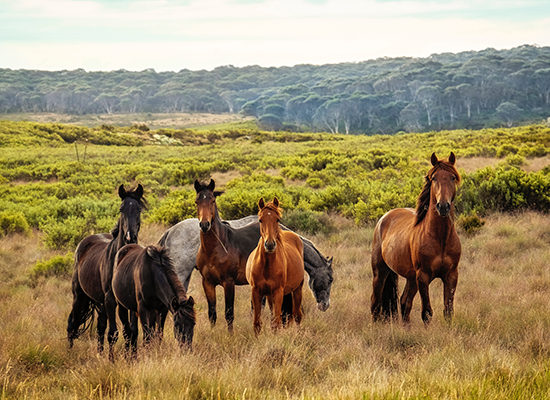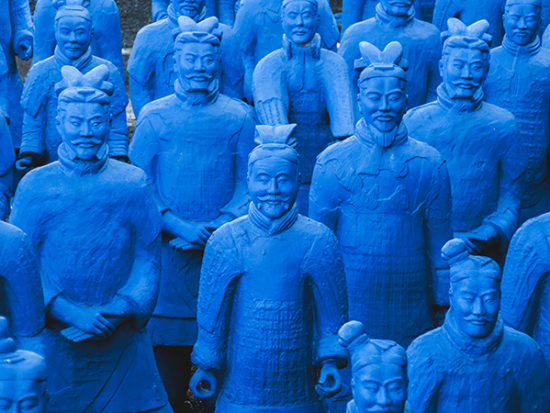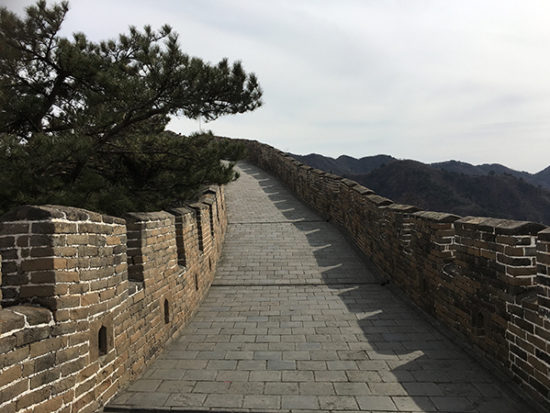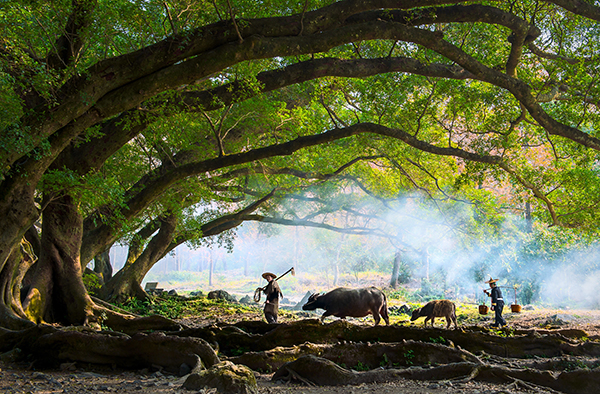Once upon a time, there was a farmer called Sei Weng. Sei Weng was a poor farmer and had only one horse, which he was dependent on for important work.
One day, his horse runs away. In the evening, his neighbor came over and said, “I’m so sorry to hear about your horse. That must be dreadful for you.”
And the farmer said, “I don’t know if it’s good or bad – we’ll see.”
The neighbor looked confused. Obviously, it was an economic tragedy for the farmer.

The next day, the horse comes back and brings with it 6 wild horses. In the evening, his neighbor came over and said, “How wonderful to get this many new horses. It seems your fortune has changed, isn’t that great?”
And the farmer said, “Maybe. We’ll see.”
Once again, the neighbor was dumbfounded. This must have been the best day of the farmer’s life.
The next day, the farmer’s son tries to tame one of the wild horses. The horse throws the son off, and he breaks his leg.
In the evening, his neighbor came over and said, “I’m so sorry to hear about your son. What a terrible accident.”
And the farmer said, “Who knows if it’s good or bad?”
The neighbor was now starting to question the sanity of the farmer.

A few weeks later, the army comes by the town to recruit able-bodied young men for the ongoing war. With a broken leg, the farmer’s son avoided being drafted. In the evening, his neighbor came over and said, “How happy you must be that your son avoided the war. Isn’t that fantastic?”
Unsurprisingly by now, the farmer said, “It is what it is.”
The story of Sei Weng has its origins in the ancient Chinese essay collection Huainanzi (淮南子) in the early Han Dynasty, more than 2000 years ago. There are many interpretations of this story. A popular one is that no events in life are predetermined to be good or bad. There is simply what is. We cannot know what events will lead to.
The moral of the story is that we decide what events mean to us. We are not just cast around by our circumstances. We are the crafters of our own experience.
You can think that circumstances are terrible or fantastic like the neighbor felt when the seemingly bad or good events occurred. You can also be like Sei Weng who most of all resembles a cow indifferently standing in the rain, not feeling particularly happy, nor very sad.
Neither of these approaches is necessarily better than the other.

What we can extrapolate is that we get to decide what things mean to us, and the meaning we attach to events will determine our emotional experience of life.
We can derive good from the seemingly bad, or we can turn fortune into misery.
The point is not that bad things don’t happen. They most certainly do.
Instead, the point is that you can decide two things: what you focus on and what events in your life mean to you. Pain can make you move. Suffering can cause you to grow. Serendipity can make you appreciative.
The ball is in your court.


 Autobiographical Reasoning – How Everyday Life Shapes Your Identity
Autobiographical Reasoning – How Everyday Life Shapes Your Identity
[…] wel wat we nodig hebben, vergeet ik voor het gemak even.In een nieuwsbrief lees ik het artikel van the Chinese farmer, die alle situaties in zijn leven aanvaardt. Niet als goed of fout, maar ‘zoals het is’. Ik […]